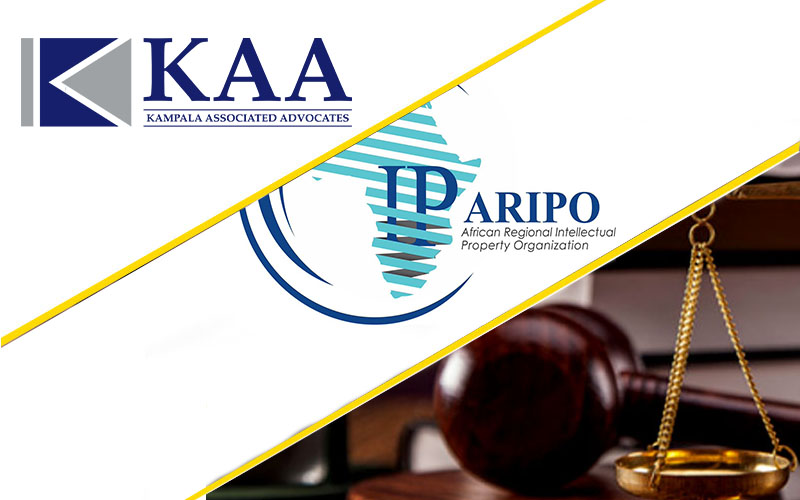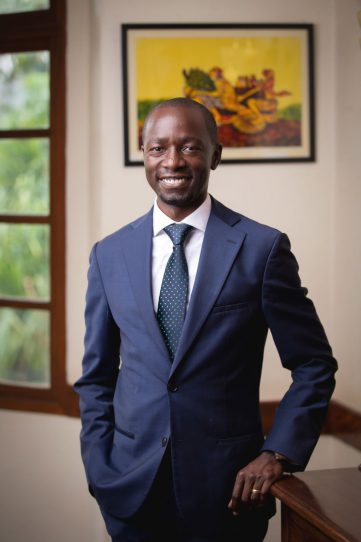All businesses around the world use names, words, symbols, signs, slogans, marks or devices to identify and distinguish their goods or services from goods made or services delivered by other businesses. Essentially, this distinguishing or identifying factor in any business becomes, if it isn’t already, the brand of your business.
A business brand is very valuable and it must be protected. If you fail to protect your business brand, there is no doubt that it will reduce in value and your business reputation will risk being damaged.
Trademark protection offers businesses an opportunity to jealously protect that name, word or symbol used to identify and distinguish goods or services offered by the business. In other words, once that identifying and distinguishing factor of your business is registered as a trademark, no one will be allowed to use it to identify or distinguish goods or services of a different business. Such protection ensures a system of genuine competition.
In Uganda, if a trademark application faces no objection and the trademark is registered with the Uganda Registration Services Bureau (URSB) in the Trademark Registry, a certificate of registration is granted to the applicant. This confers upon him/her, the exclusive right to use the said mark in relation to a particular class of goods or services as a registered proprietor. This kind of protection is offered by many other jurisdictions within Africa in the same way. The registered proprietor can sue any other business which may use a name or mark similar to or likely to cause confusion with the registered mark among consumers. This right of exclusivity is enforced by the Courts of law which have the authority to block trademark infringement.
However, this protection is territorial in nature and the business or trademark proprietor may not succeed in trying to enforce the right of exclusivity outside Uganda. For instance, a business established in Uganda may start advertising its services in Zambia with the intention of eventually exporting those services to Zambia. If a Zambian business adopted any slogan or word used in the advertisement, the Ugandan business would not be able to sue for infringement unless the mark is registered in Zambia as well.
Unfortunately, it would be very costly for a business to protect its trademark separately in each African country. In order to avoid such an expense, businesses must consider protecting their trademarks extraterritorially at a regional level.
Regional systems of trademark registration
In Africa, there are two main organisations governing trademark registration and they facilitate the maintenance of a central management system for trademarks; the African Regional Intellectual Property Organisation (ARIPO) and the Organisation Africane de la Propriete Intellectuelle (OAPI), which represent 36 of the 54 African states.
ARIPO and OAPI, as the main systems of protection of Intellectual Property rights in Africa, ensure that a business’s brand is protected in a number of African countries using the same application as opposed to filing separate applications for protection in individual countries. This write up will only look at the system of trademark registration at ARIPO.
African Regional Intellectual Property Organisation (ARIPO)
ARIPO, formally known as the English Speaking African Regional Intellectual Property Organisation, was created under the Lusaka Agreement of 1976. Currently, the Organisation has 19 member states; Uganda, Kenya, Tanzania, Rwanda, Sudan, Somalia, Botswana, the Gambia, Ghana, Lesotho, Liberia, Malawi, Mozambique, Namibia, São Tomé and Príncipe, Sierra Leone, Swaziland, Zambia and Zimbabwe.
The registration of trademark rights at ARIPO is regulated by the Banjul Protocol on Marks (1993) which establishes a centralised, cost-effective and user friendly system to file for trademark registration. It must be noted that only 10 states of the 19 members are signatory to this Protocol and so far, only 4 of the 10 states have domesticated the Protocol in their national laws. This may mean that registration with ARIPO can only guarantee you protection in only four African states.
However, this shouldn’t scare intending applicants. Many of the member states are enacting new trademark laws that domesticate the Protocol, for instance in Malawi. In some states, like Namibia and São Tomé and Príncipe, international treaties that are acceded to automatically become part of the state’s national law. Other states that are not yet signatory to the Protocol have already enacted laws to lay ground for the implementation of the Protocol in their states, for instance in Kenya and Mozambique.
How to apply for protection at ARIPO
Before commencing with an application, it is advisable to first carry out a search in the ARIPO trademark database which contains over 350,000 trademarks from the ARIPO system and from the member states. This database was specifically established to create a centralized database for IP titles published by ARIPO and those of its member states. Carrying out a search allows the applicant to determine, before hand, in which states an application would be granted without facing objection.
Applications for trademark protection to ARIPO can be filed in any one of two ways;
- Directly to the ARIPO office through e-filing, personal service, registered mail, via courier; or
- The applications may be filed in a contracting state through the ARIPO national office established in each member state.
E-filing is done through online filing services which were introduced to allow applicants to conduct their business electronically in a secure environment. This facility allows for online filing of intellectual property applications, payment of filing fees and general tracking of field applications.
The second form of application is through directing the applications to ARIPO through a member state. As already noted, ARIPO offices are conveniently placed at the national offices of each member state. The application is submitted to the national office of a designated member state and then transmitted to the ARIPO office. In Uganda for instance, an application for trademark registration may be filed at Uganda Registration Services Bureau (URSB) for registration at ARIPO.
In effect, such a trademark registration would ensure that your business brand is protected in each of the states designated within the application, the same way a regular national filing is protected in an individual state. Businesses must therefore identify, from the ARIPO member states, which states they intend to sell or advertise their goods or services and designate those states within the application.
The application should contain the name and address of the applicant, designation of the Banjul Protocol contracting state(s), the corresponding class or classes of goods or services, names of the colours claimed as distinctive features of the mark and a dimensional or graphic reproduction of the mark intended to be registered.
The goods or services of your business must be classified in accordance with the Nice Classification which is an international classification of goods and services applied to registration of marks. It is established by the Nice Agreement of 1957 and is updated annually by the World Intellectual Property Organisation (WIPO). Since this classification system is recognised in numerous countries, applying for trademarks is a more streamlined process.
Who can apply?
A natural person or a legal corporate body with bona fide rights to apply for registration of a mark can apply for registration. An application may be made in person or through an authorized representative. The authorized representative must be a trademark agent or legal practitioner duly recognized by the national industrial property office of the contracting state.
If the applicant is not an ordinary resident of a contracting state and has no principal place of business in any of the contracting states, he or she must authorize a representative in any of the contracting states to file the application.
How much does it cost?
The Regulations under the Banjul Protocol contain a schedule which provides for all fees applicable to the different services rendered by the ARIPO Office. For trademarks, the fees are as follows:
- Application fee – 100 for applications filed in hard copy.
– USD. 80 for applications filed online.
- Fee for the first class per state – 50
- For each additional class per state – 10
- Registration Fee – 100 for one class per designated state.
- Registration fee – 50 for every additional class per designated state.
Carrying out a search in the vast ARIPO trademark database is free of charge and as shown in the above list, filings that are made online receive a 20% discount on the application fee. The above costs do not include attorney fees/charges.
Registration of the trademark
Subject to the payment of the requisite fees, your trademark application will be published by ARIPO and the trademark will then be registered after the expiration of 3 (three) months from the date of publication.
Before registration, applications are examined at two different levels. The national intellectual property offices of the member states carry out a substantive examination of the application and when submitted to ARIPO, a formal examination is carried out. This means that an application may be rejected in one designated member state and granted in another. Rejection in one member state does not invalidate one’s application in other designated states.
A registered trademark is valid for a period of 10 (ten) years from the filing date and it can be renewed over and over for further periods of 10 (ten) years each. This means that your business brand can be protected forever as long as you abide by the renewal requirements.
Claiming priority
The ARIPO system allows trademark owners to claim priority while applying for trademark protection in designated states. Priority simply demands that the date of filing the first trademark application in one state is applied as the date of filing subsequent applications for protection in other states.
Many jurisdictions register trademarks on a first-come-first-serve basis. Therefore, your application is examined in comparison to marks that have already been registered or marks whose applications have been filed before yours. As already noted, an application will be rejected if it is similar to or likely to cause confusion with a registered mark.
A mark already registered in one state can be given priority over a similar or identical mark in another state, despite the former being filed later in time than the latter. From the example given earlier in this write up, the Ugandan business can apply for protection at ARIPO and claim priority if it learnt that a Zambian business was trying to apply for protection of that slogan or word advertised and owned by the Ugandan business. Since the trademark was already registered in Uganda, the subsequent filing in Zambia will be given the same date as that of the Ugandan filing. The applicant must claim priority while applying for protection in order to enjoy this right.
Conclusion
The continued growth of demand for African goods and services, coupled with the obviously increasing interest by foreign investors in the African market, African businesses must be prepared to protect their identity in various countries. Similarly, with many entities opening markets in various African countries, ARIPO provides a practical opportunity and platform for any business entity in Africa or elsewhere to protect its brand in more than just one territory. Your brand would be protected in an ENTIRE REGION.
Caveat:
Caveat: The content of this article is intended to provide a general guide to the subject matter. Specialist advice should be sought about your specific circumstances.



